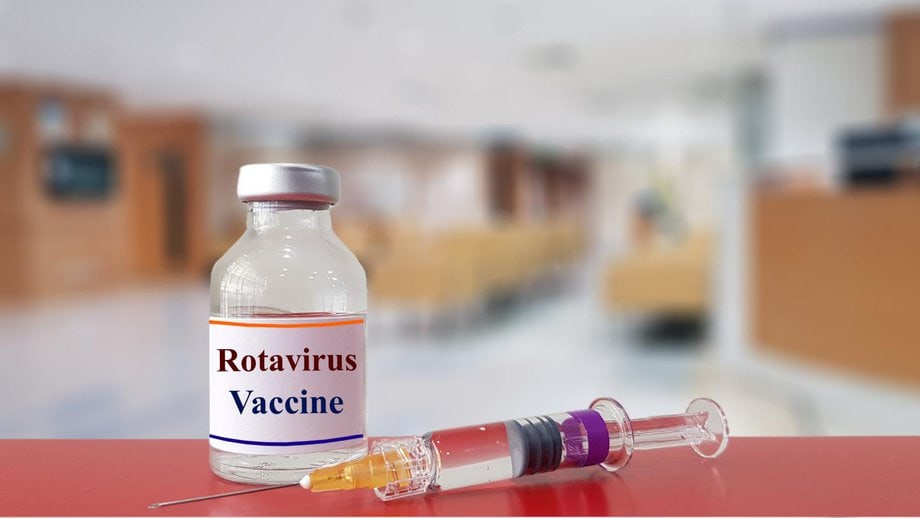Rotavirus Vaccination: Benefits, Schedule, and Importance for Children

Are you concerned about protecting your child from severe diarrhea? Look no further! In this article, we will delve into the benefits, schedule, and importance of rotavirus vaccination for children.
Discover how this vaccine can safeguard your little one’s health and prevent the distressing symptoms of rotavirus infection.
We will also address any concerns you may have about side effects and safety.
So, let’s explore the world of rotavirus vaccination together and ensure your child’s well-being.
Key Takeaways
- Rotavirus vaccination is the most effective way to prevent rotavirus infection.
- Vaccination significantly reduces the risk of severe diarrhea in young children and prevents dehydration.
- Following the recommended vaccination schedule ensures full benefits of the vaccine.
- The vaccine is safe and has minimal side effects, with most children experiencing no side effects.
Understanding Rotavirus: What You Need to Know
Understanding rotavirus is important for parents who want to protect their children from this highly contagious virus. By being aware of the symptoms, you can recognize them early and seek medical attention.
Rotavirus symptoms include severe diarrhea, vomiting, fever, and abdominal pain. It is crucial to understand that rotavirus spreads easily through contact with contaminated objects, surfaces, or even person-to-person contact.
To prevent rotavirus infection, proper hygiene practices are essential. Make sure to wash your hands frequently with soap and water, especially after changing diapers or using the bathroom. It is also essential to clean and disinfect surfaces regularly, particularly those that come into contact with food or toys.
Additionally, getting your child vaccinated is the most effective way to prevent rotavirus infection and its complications.
The Importance of Rotavirus Vaccination for Children
You should know that getting your child vaccinated against rotavirus is crucial for their health and well-being.
Rotavirus is a highly contagious virus that can cause severe diarrhea and vomiting, leading to dehydration and hospitalization in young children.
By vaccinating your child, you can protect them from this potentially dangerous infection.
The importance of rotavirus vaccination cannot be overstated. It not only prevents your child from getting sick but also helps to prevent the spread of the virus to other children.
The vaccine is safe and effective, with minimal side effects.
It is recommended that children receive the rotavirus vaccine as part of their routine immunization schedule.
Talk to your child’s healthcare provider to ensure that your child is up to date with their vaccinations and protected against rotavirus.
Benefits of Rotavirus Vaccination: Protecting Against Severe Diarrhea
Did you know that getting vaccinated against rotavirus can significantly reduce the risk of severe diarrhea in young children? Rotavirus is a highly contagious virus that affects the gastrointestinal tract, causing vomiting and diarrhea. By getting your child vaccinated, you are not only protecting them from this unpleasant illness, but also preventing dehydration and reducing the need for hospitalizations.
Imagine the peace of mind knowing that your child is safe from rotavirus, and you don’t have to worry about them suffering from severe diarrhea.
- No more rushing to the hospital in the middle of the night.
- No more sleepless nights spent taking care of a sick child.
- No more worrying about your child becoming dehydrated.
With rotavirus vaccination, you can ensure that your child stays healthy and happy, without the risk of severe diarrhea and its complications. Don’t wait, talk to your healthcare provider about getting your child vaccinated today.
Exploring the Recommended Rotavirus Vaccination Schedule
The recommended schedule for getting vaccinated against rotavirus includes multiple doses to provide optimal protection. Rotavirus vaccine effectiveness is well-established, with studies showing that the vaccine reduces the risk of severe diarrhea caused by rotavirus infection by up to 90%.
It is important to follow the recommended vaccination schedule to ensure that your child receives the full benefits of the vaccine.
In terms of rotavirus vaccination coverage rates, it is encouraging to see that many countries have made significant progress in increasing the number of children receiving the vaccine. However, there is still room for improvement, as some regions continue to have lower vaccination rates.
Side Effects and Safety of Rotavirus Vaccination
It’s important to note that the side effects of the rotavirus vaccine are generally mild and temporary. Here are some key points to consider regarding the safety and efficacy of the vaccine:
- Most children who receive the rotavirus vaccine experience no side effects at all.
- In rare cases, some children may experience mild side effects such as fussiness, diarrhea, or vomiting.
- These side effects usually last for a short period and do not require any specific treatment.
- The benefits of rotavirus vaccination far outweigh the potential risks.
By vaccinating your child against rotavirus, you are protecting them from a highly contagious and potentially serious illness. The vaccine has been extensively studied and proven to be safe and effective in preventing severe cases of rotavirus infection.
How Does Rotavirus Vaccination Work?
When your child receives the rotavirus vaccine, their immune system is being trained to recognize and fight against the virus. The rotavirus vaccine works by introducing a weakened or inactivated form of the rotavirus into your child’s body. This stimulates their immune system to produce antibodies that specifically target the rotavirus.
These antibodies help protect your child from getting sick if they are exposed to the actual virus in the future. The effectiveness of the rotavirus vaccine has been proven through extensive research and studies. It has been found to be highly effective in preventing severe diarrhea caused by the rotavirus, which can lead to dehydration and hospitalization.
Comparing Rotavirus Vaccines: Which One Is Right for Your Child?
Choosing the right rotavirus vaccine for your child can be a decision based on factors such as age and medical history. When comparing the effectiveness of different vaccines, it’s important to consider their ability to prevent severe rotavirus disease and hospitalization.
Both Rotarix and RotaTeq are highly effective in preventing rotavirus infection, but they have some differences. Rotarix is given in two doses, while RotaTeq is given in three doses. Additionally, Rotarix has shown higher efficacy against severe rotavirus disease, while RotaTeq provides broader protection against different strains of the virus.
Vaccine availability may also vary depending on your location and healthcare provider. Consulting with your pediatrician is crucial in making an informed decision about which rotavirus vaccine is best suited for your child’s specific needs.
Frequently Asked Questions About Rotavirus Vaccination
If you have any concerns or questions about the rotavirus vaccine, don’t hesitate to ask your pediatrician for more information. They are there to address any worries you may have and provide you with the necessary knowledge to make an informed decision.
Here are some common concerns and information about the vaccine’s effectiveness:
- Common Concerns:
- Is the rotavirus vaccine safe for my child?
- What are the possible side effects?
- Can my child still get sick even after receiving the vaccine?
- Vaccine Effectiveness:
- The rotavirus vaccine is highly effective in preventing severe cases of rotavirus infection.
- It has been shown to reduce hospitalizations and emergency room visits due to rotavirus-related illnesses.
Frequently Asked Questions
What Are the Common Symptoms of Rotavirus Infection in Children?
Rotavirus infection symptoms in children include diarrhea, vomiting, fever, and abdominal pain. Treatment options include rehydration with fluids and electrolytes, and in severe cases, hospitalization may be necessary.
Can a Child Receive the Rotavirus Vaccine if They Have a Weakened Immune System?
If your child has a weakened immune system, it’s important to discuss the safety of the rotavirus vaccine with their healthcare provider. They can provide guidance tailored to your child’s specific situation.
Are There Any Long-Term Effects of Rotavirus Infection in Children?
Long-term effects of rotavirus infection in children include complications, reduced immune response, and higher hospitalization rates. It is important to consider these risks when making decisions about rotavirus vaccination for your child.
Is It Necessary to Complete the Full Rotavirus Vaccination Series for It to Be Effective?
Yes, it is necessary to complete the full rotavirus vaccination series for it to be effective. Partial vaccination may not provide the same benefits as completing the series, including protection against severe rotavirus infection.
Can the Rotavirus Vaccine Cause the Child to Contract the Virus It Is Meant to Prevent?
No, the rotavirus vaccine cannot cause your child to contract the virus it is meant to prevent. It is safe and effective in protecting against rotavirus infections, which can cause severe diarrhea and dehydration.








